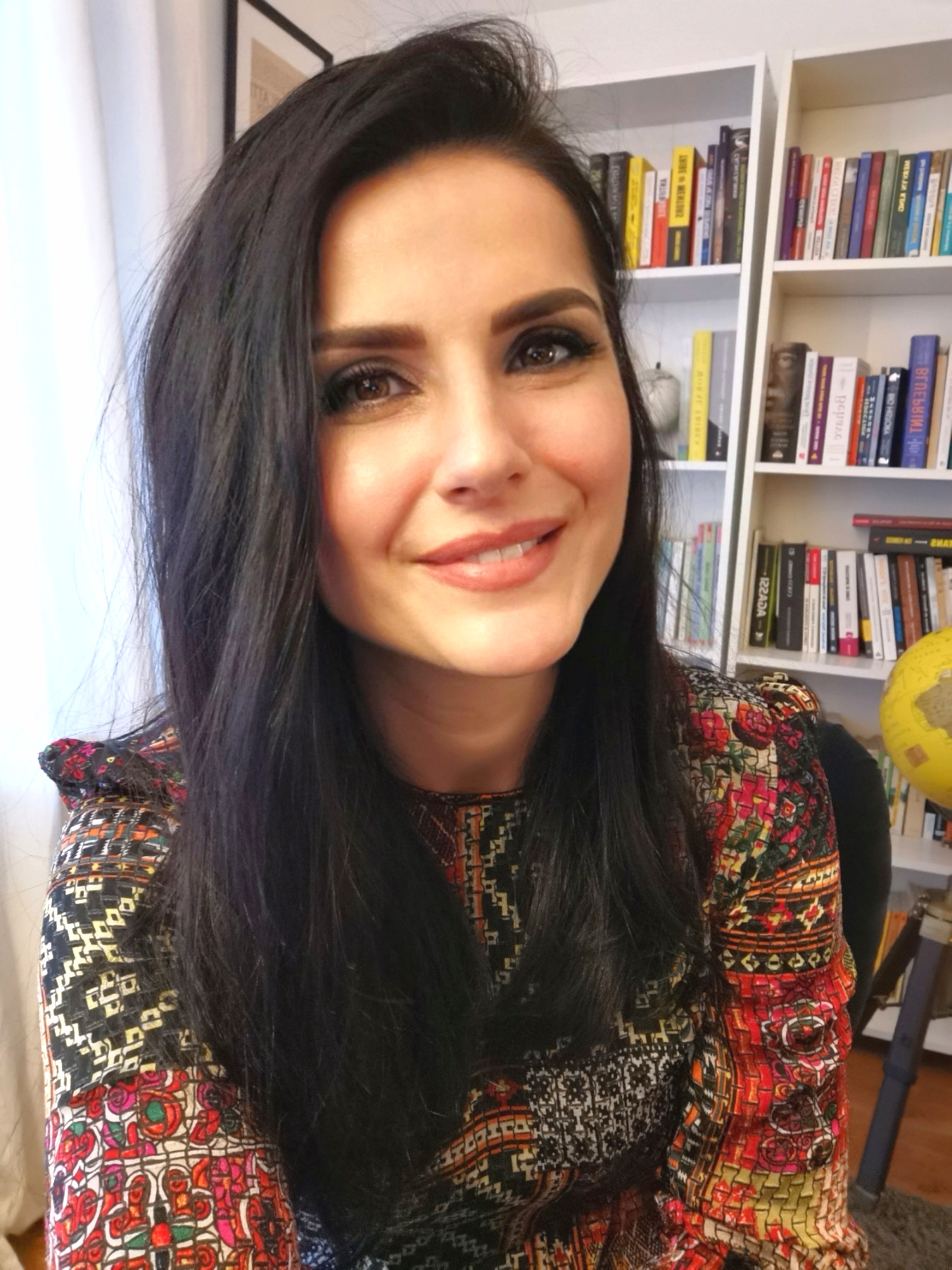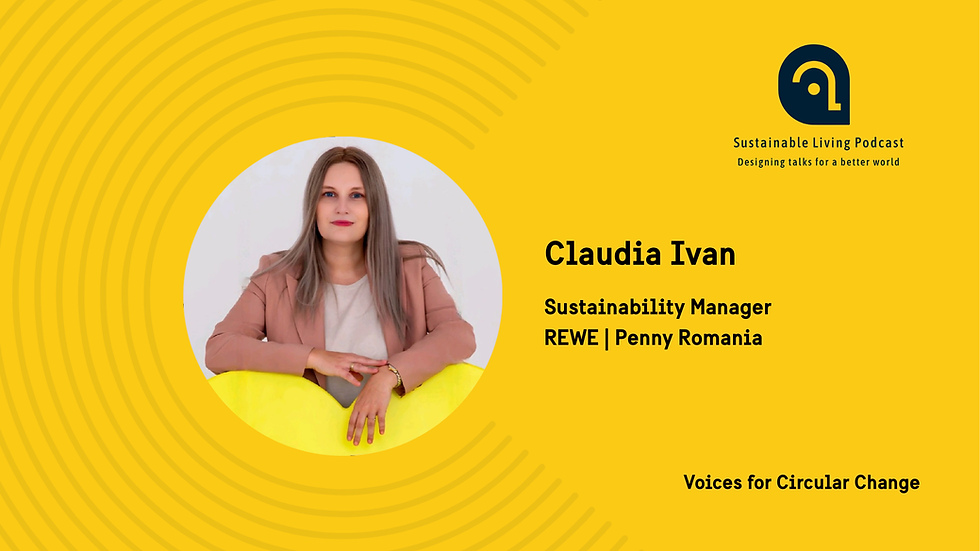Trustworthy AI and Inclusive Education: How We Shape Society in the Age of Artificial Intelligence
- Editor

- 6 iul. 2025
- 4 min de citit
Actualizată în: 4 aug. 2025
Insights from Prof. Fredrik Heintz | Sustainable Living Podcast – AI for a Sustainable Future

In recent years, artificial intelligence (AI) has shifted from being a niche technological field to a transformative force reshaping society at every level. But as AI becomes more embedded in our daily lives, critical questions emerge: Who benefits? How do we build trust? And how can we ensure AI supports human wellbeing, rather than undermining it?
These are the questions at the heart of our latest Sustainable Living Podcast episode with Prof. Fredrik Heintz, one of Europe’s most influential voices in AI research, education, and policy. A Professor of Computer Science at Linköping University, Sweden, and a driving force behind initiatives like WASP-ED, TAILOR, and the Swedish AI Society, Heintz has spent his career addressing both the technical and societal dimensions of AI.

“AI is what we call a general-purpose technology,” explains Heintz. “It changes all other technologies. It doesn’t just transform one sector—it transforms society as a whole.”
AI as a Catalyst for Change—and Inequality
While AI promises efficiency, productivity, and new solutions to complex global challenges, it also acts as a multiplier, amplifying existing divides. This, warns Heintz, is one of the most pressing concerns as AI scales globally.
“If you already have access to opportunities, AI can help you become even more successful,” he notes. “But for those without resources or access to education, the gap only widens. That’s why education is absolutely crucial.”
To address this, Heintz is leading efforts to democratize AI knowledge through WASP-ED, Sweden’s national education development program for AI and transformative technologies. The initiative aims not only to scale up technical education, but also to integrate AI literacy into all disciplines—from law and healthcare to humanities and social sciences.
“We’ve learned from introducing programming in schools that a single course isn’t enough,” says Heintz. “Students need to actively use AI tools across different subjects to understand their impact. The same applies to society—we need broad, accessible AI education for everyone.”
Sweden’s Human-Centered Approach
Sweden has gained international recognition for its collaborative, values-driven AI strategy. According to Heintz, the country’s strong partnerships between academia, industry, and government are key to building trustworthy, ethical AI.
“In Sweden, we emphasize human control, inclusion, and aligning AI with democratic values,” Heintz explains. “It’s not just about technical advancement—it’s about ensuring AI works for society as a whole.”
This perspective is reflected in European initiatives like TAILOR, which connects AI research excellence centers across Europe to promote trustworthy, human-centric AI development. Heintz also serves as chair of the European AI Research Network, CLAIRE, further reinforcing Sweden’s role in shaping AI policy at the continental level.
Education as the Foundation for an AI-Literate Society
For Heintz, building an AI-literate society starts early. He and his colleagues advocate for introducing AI concepts in primary education to ensure that future generations can use AI critically and responsibly.
“People shouldn’t passively use AI or let it replace them,” he says. “We need to stay in control, understand the risks, and leverage AI as a powerful tool to complement human skills—not substitute them.”
Sweden has already taken concrete steps, such as making the popular Elements of AI course available in Swedish. But Heintz believes these efforts must scale significantly to reach the broader population.
“It’s encouraging that over 80,000 people in Sweden have started the course, but that’s still only a fraction of the population. We have a long way to go to ensure AI benefits everyone.”
A Global Manifesto for AI and Society
Asked what principles should guide global AI development, Heintz outlines three essential commitments:
AI for All: Access to AI tools and education must be inclusive, ensuring no group is left behind.
AI as a Complement, Not a Replacement: Technology should empower humans, enhancing capabilities rather than eliminating jobs or roles.
Human Control: Individuals and societies must remain in control of AI systems, resisting the temptation to surrender decision-making to algorithms.
“We need to actively stay in control,” emphasizes Heintz. “It’s easy to become comfortable with AI recommendations, but real empowerment comes from understanding and shaping these tools ourselves.”
A Sustainable, Resilient AI Future
Ultimately, Heintz calls for a long-term, sustainable approach to AI integration—one that considers not just immediate economic gains, but also societal well-being, inclusion, and resilience.
“Technology evolves rapidly, but its real diffusion into society takes decades,” he reflects. “If we want AI to be a force for good, we must invest in education, collaboration, and building trust now.”
Watch to the Full Conversation:
For more insights from Prof. Fredrik Heintz on AI, society, and sustainable innovation, tune in to the full episode of the Sustainable Living Podcast – AI for a Sustainable Future:
Website: www.sustainableliving.ro
Spotify: https://spoti.fi/3rI4agY
Apple Podcast: https://podcasts.apple.com/us/podcast...
YouTube: https://bit.ly/2QWCPuB
Facebook: www.facebook.com/SustainableLiving.ro
Instagram: www.instagram.com/SustainableLiving.ro
About the Sustainable Living Podcast
The Sustainable Living Podcast explores how technology, innovation, and collective action can drive a more sustainable and equitable future. In the special series AI for a Sustainable Future, we engage with global experts to unpack the societal impact of AI—and how to ensure it serves humanity.
Learn more at www.sustainableliving.ro










Comentarii